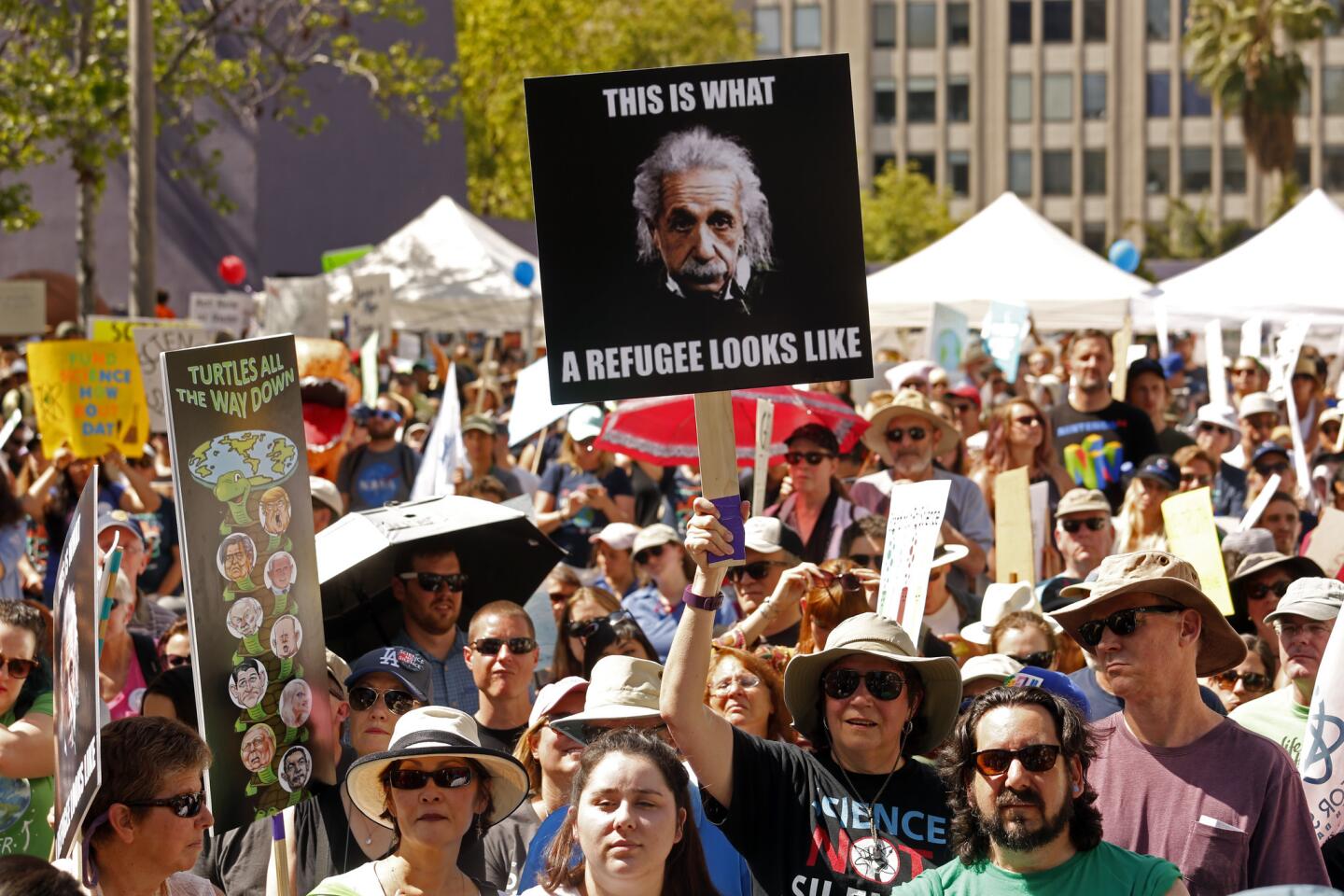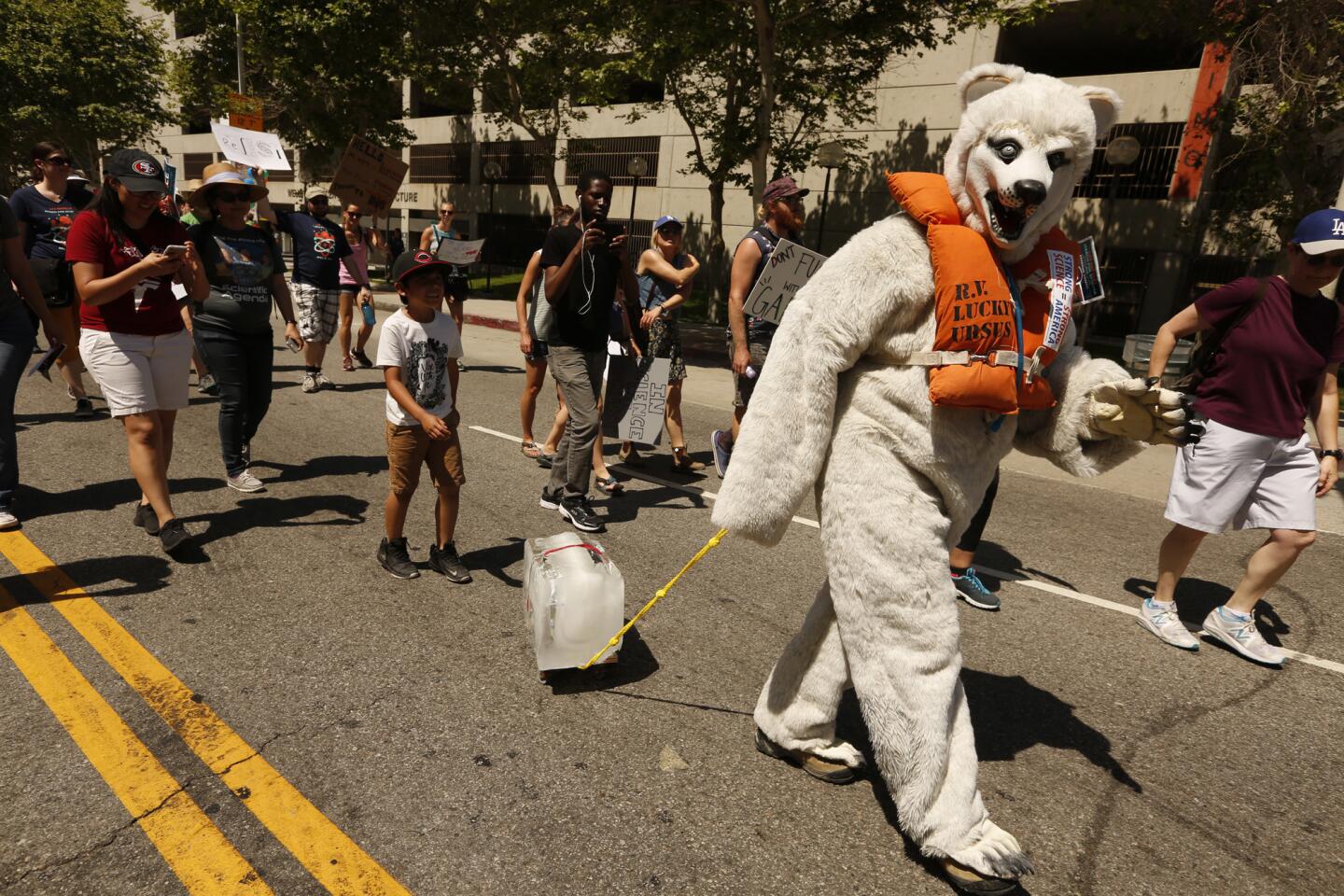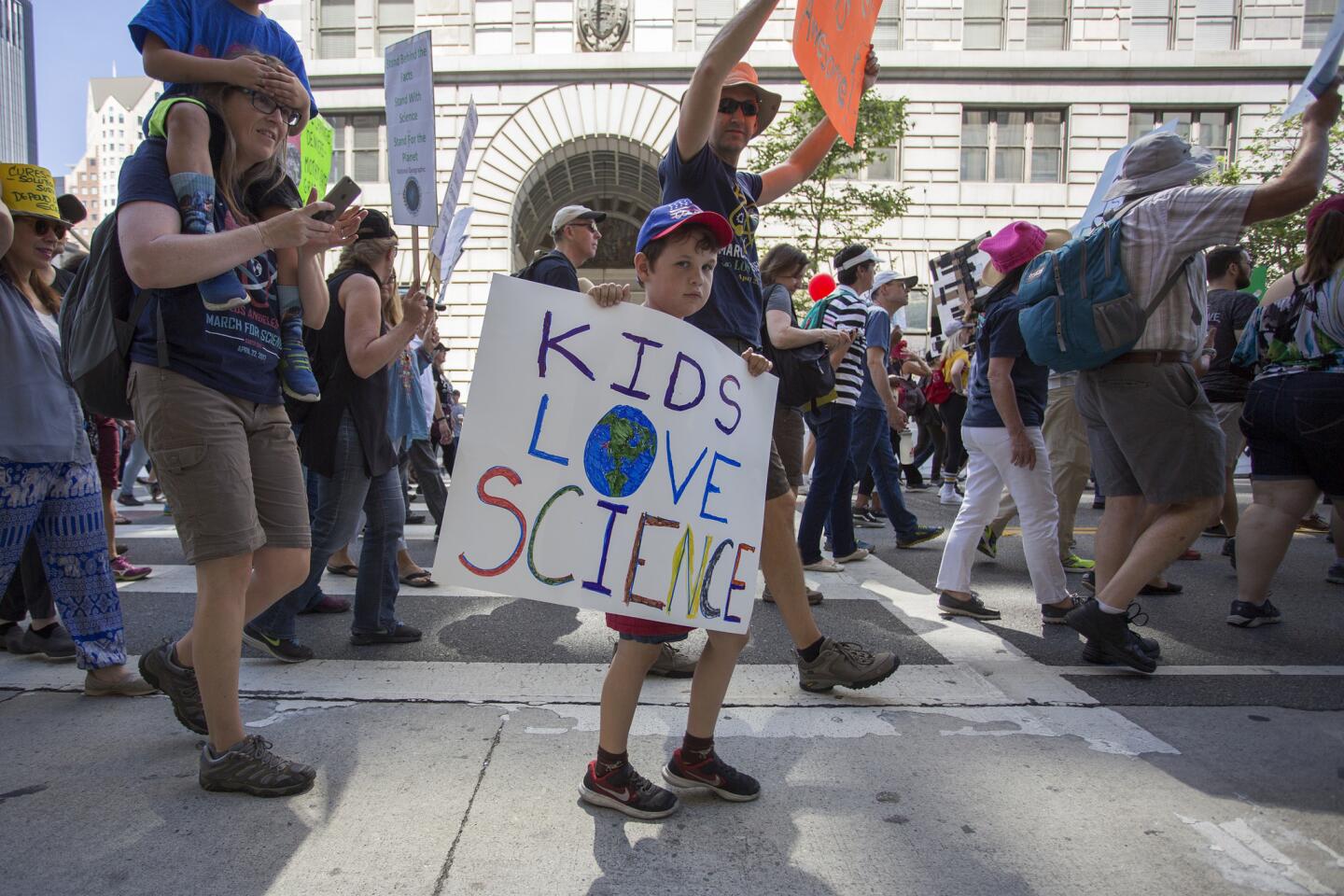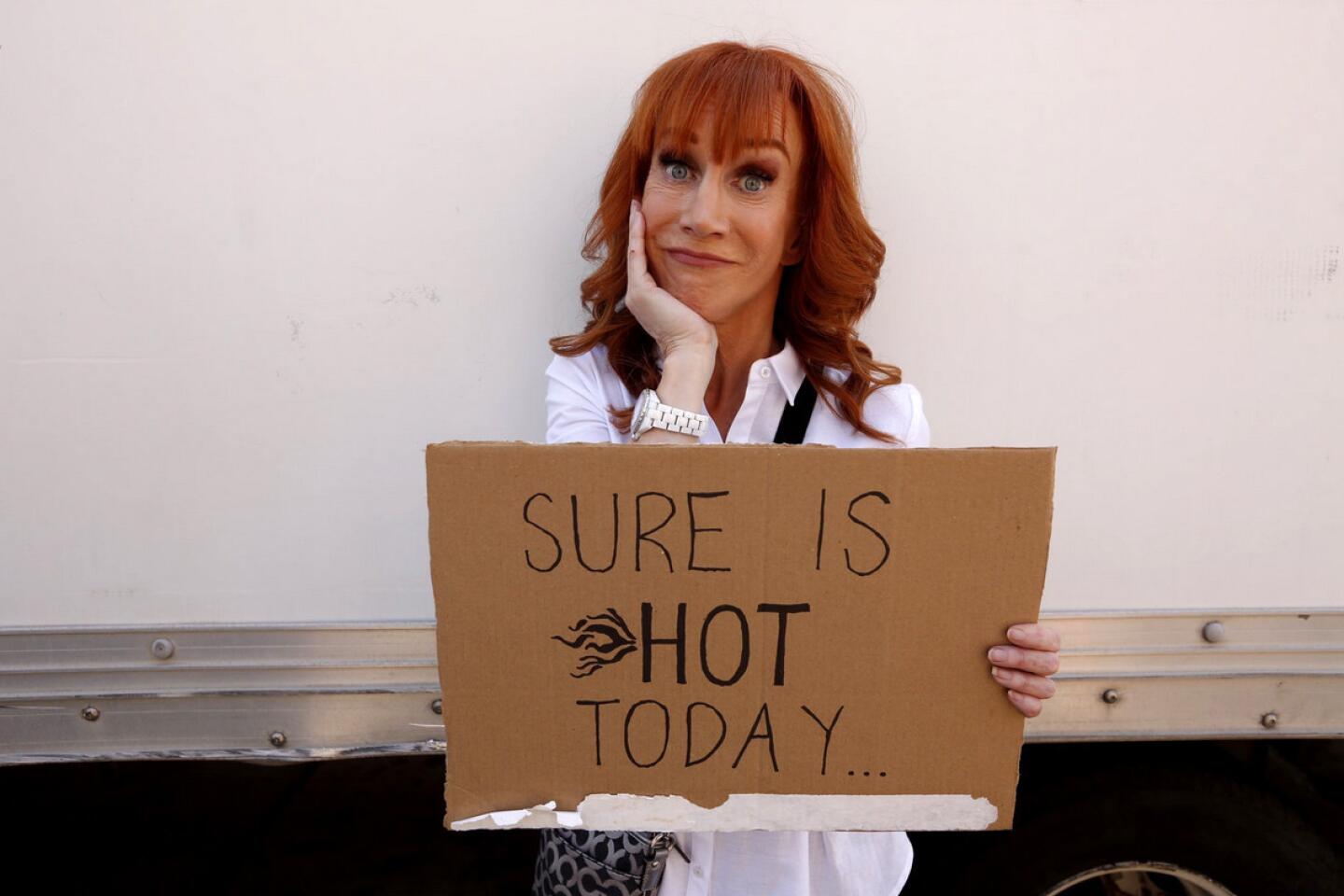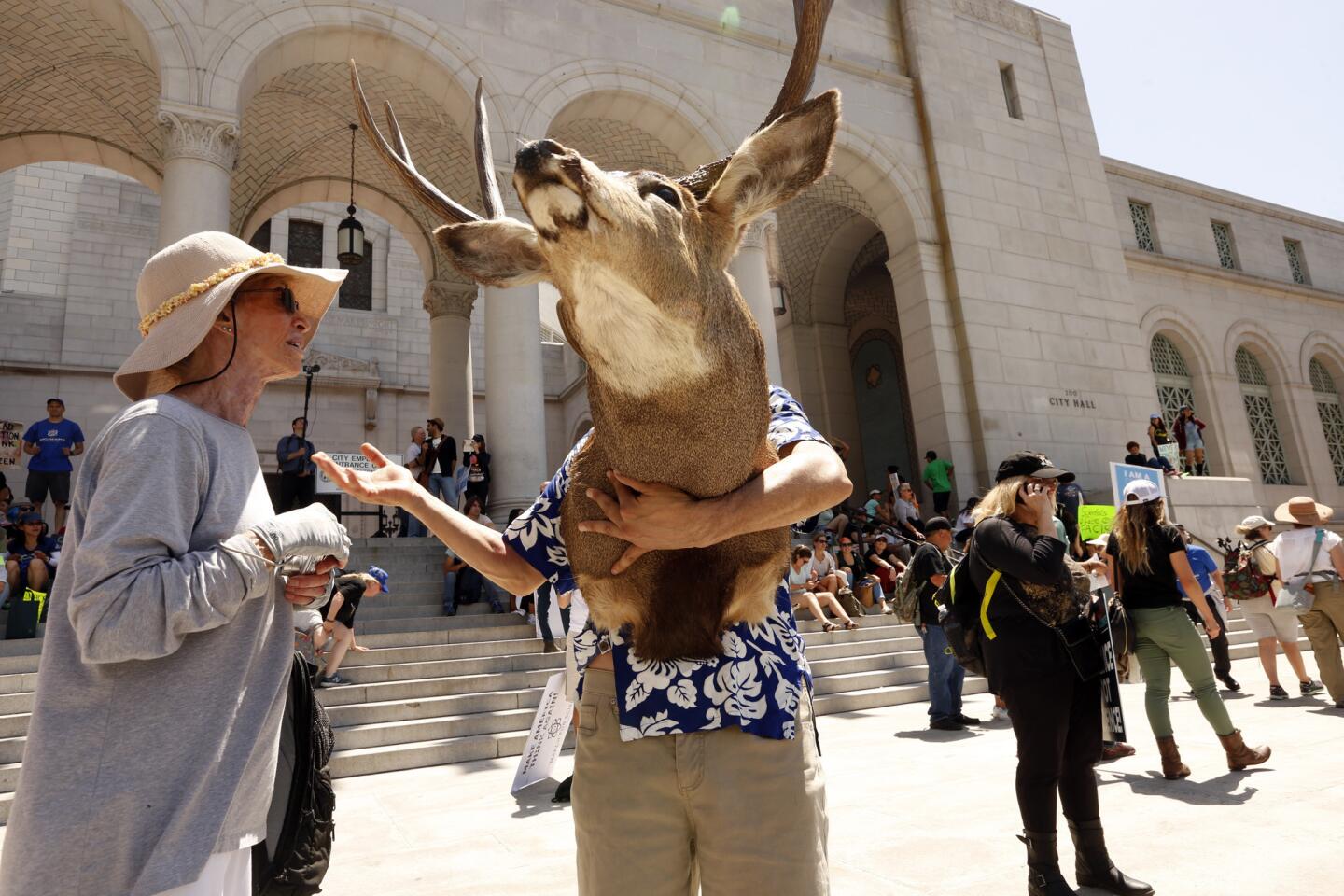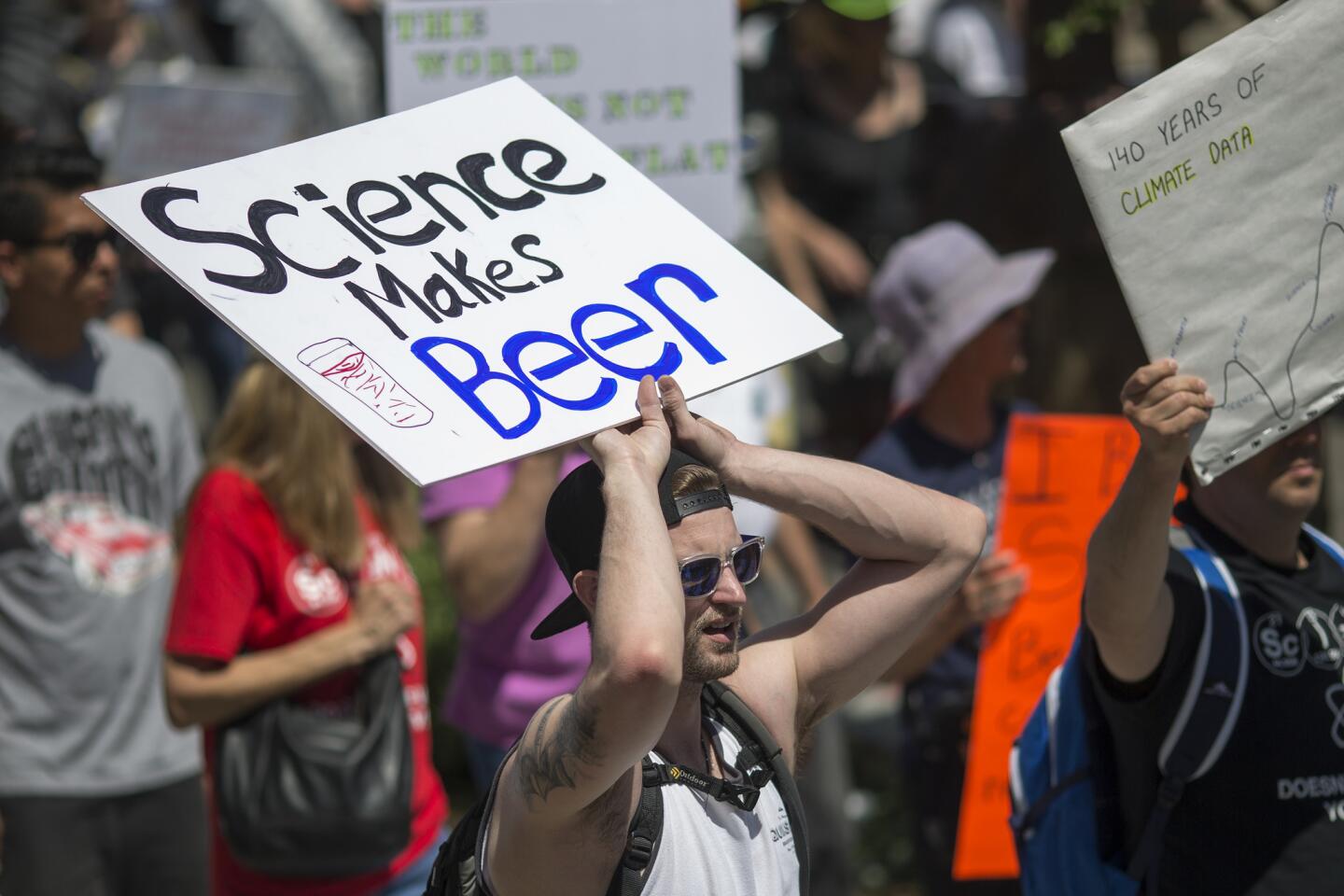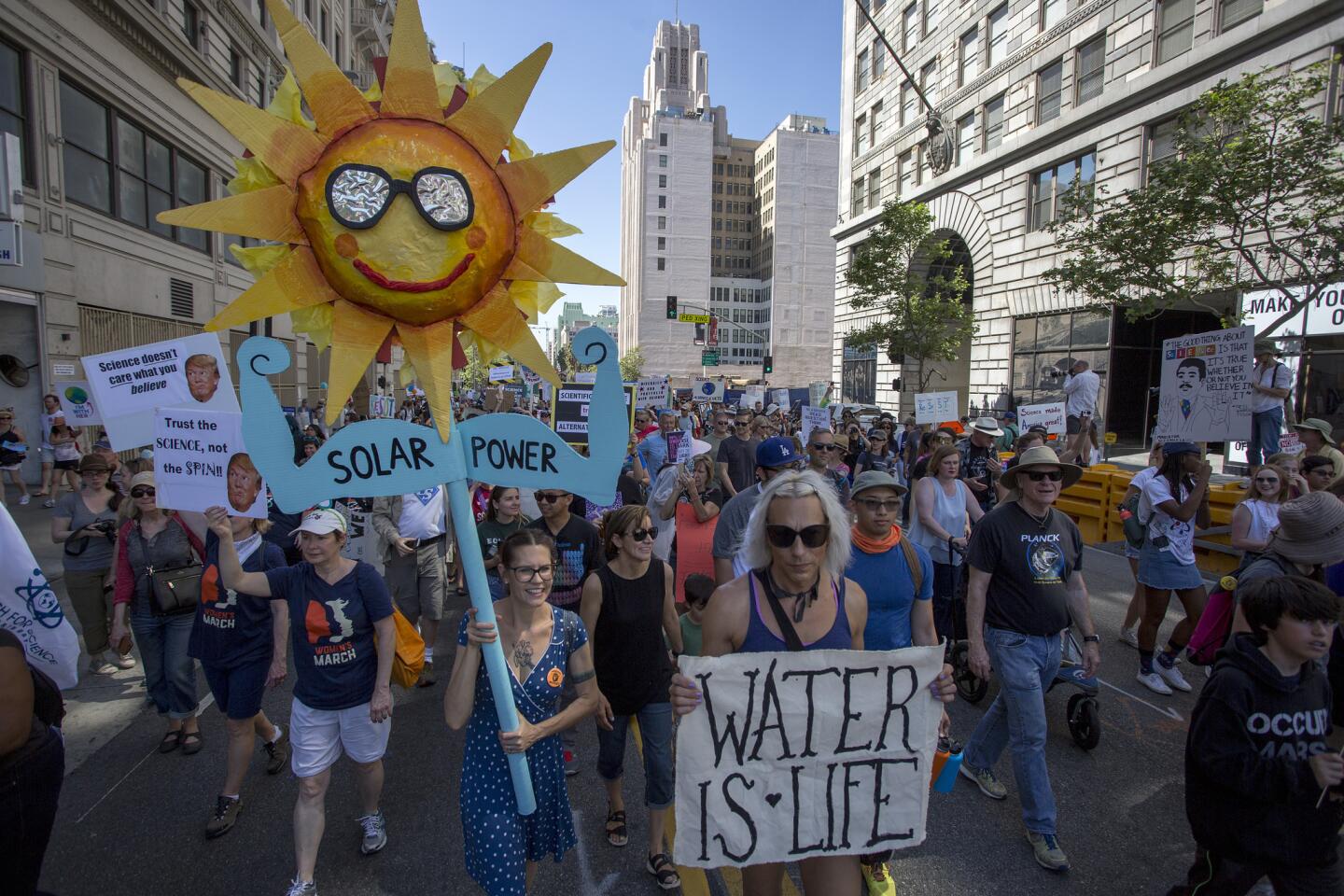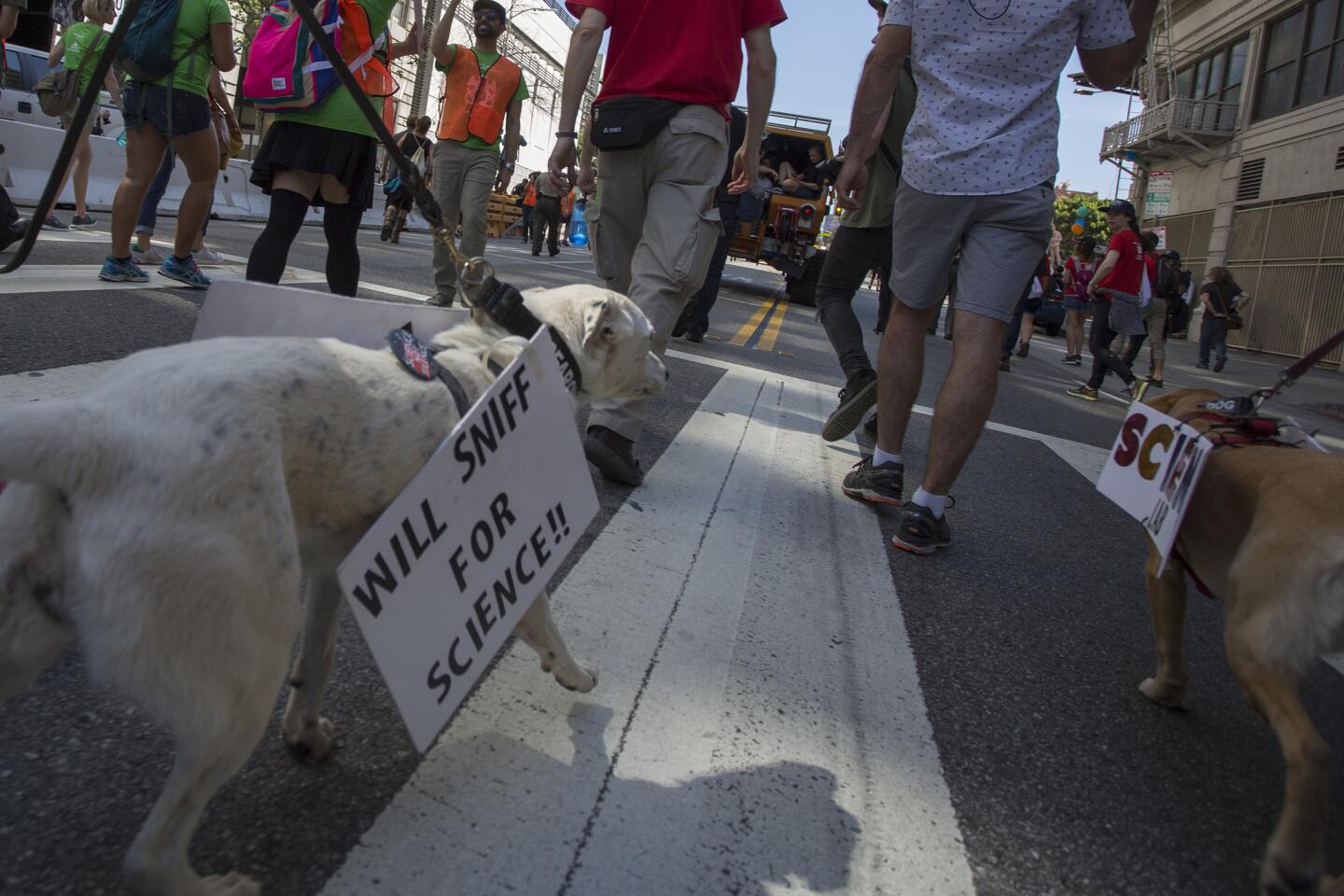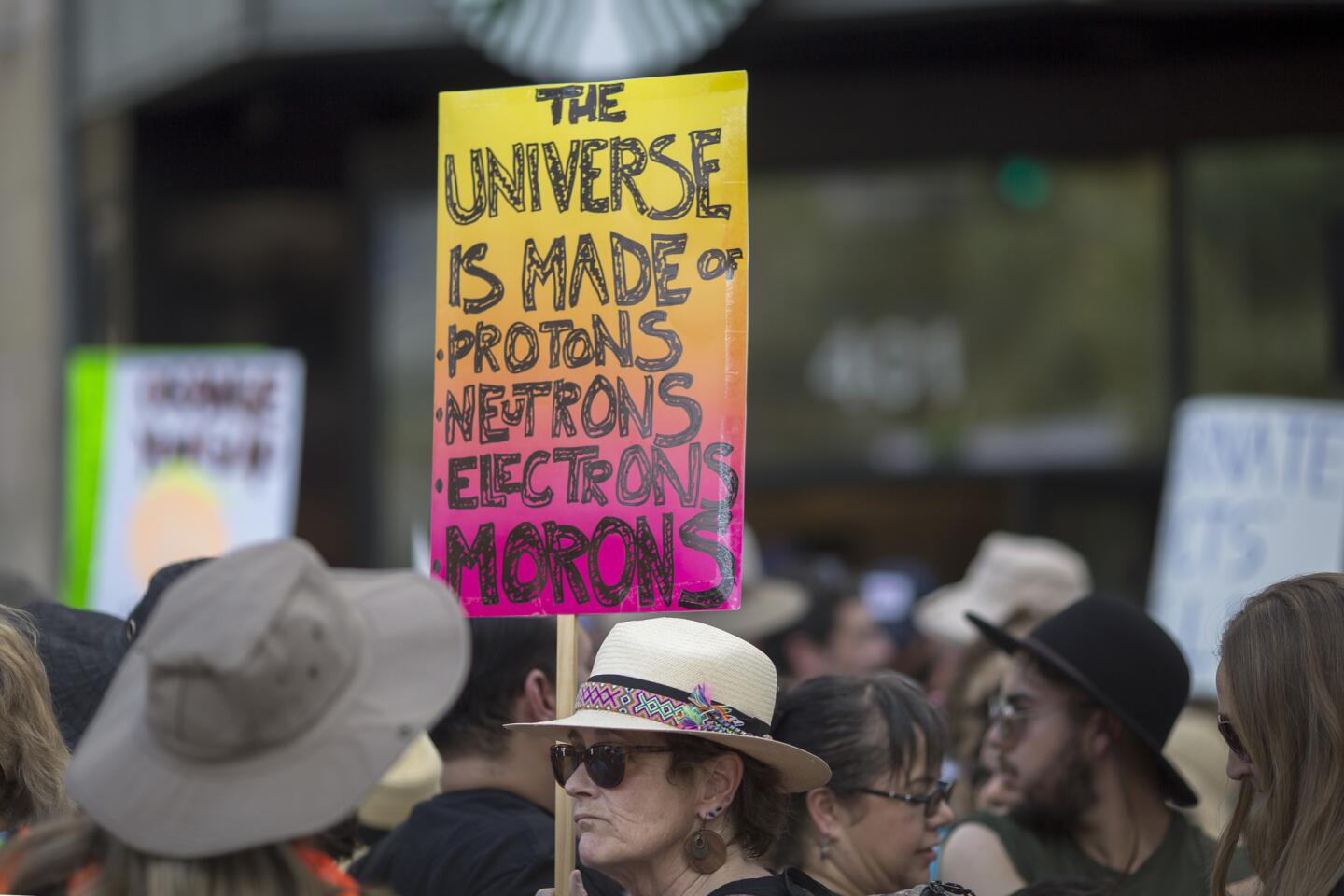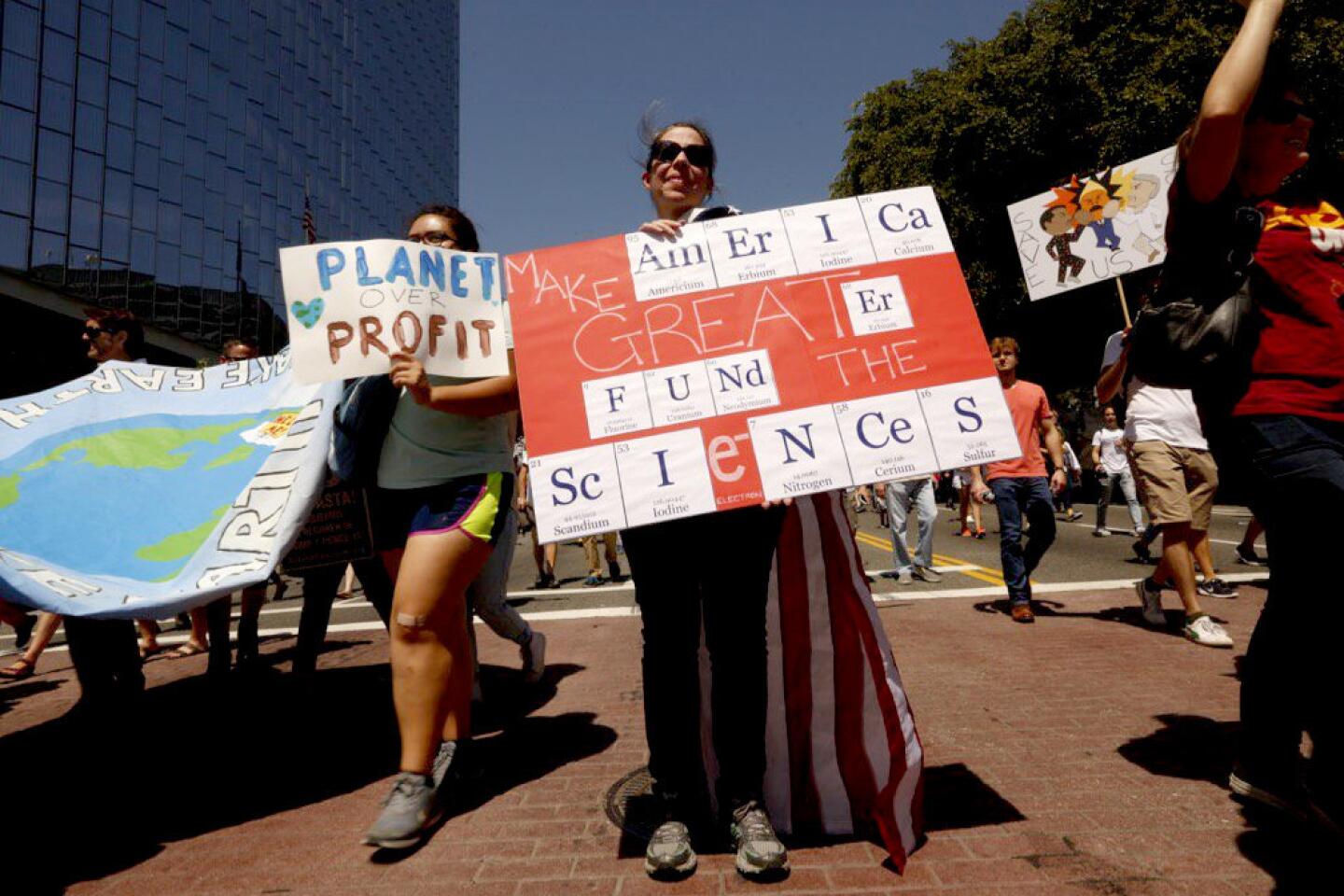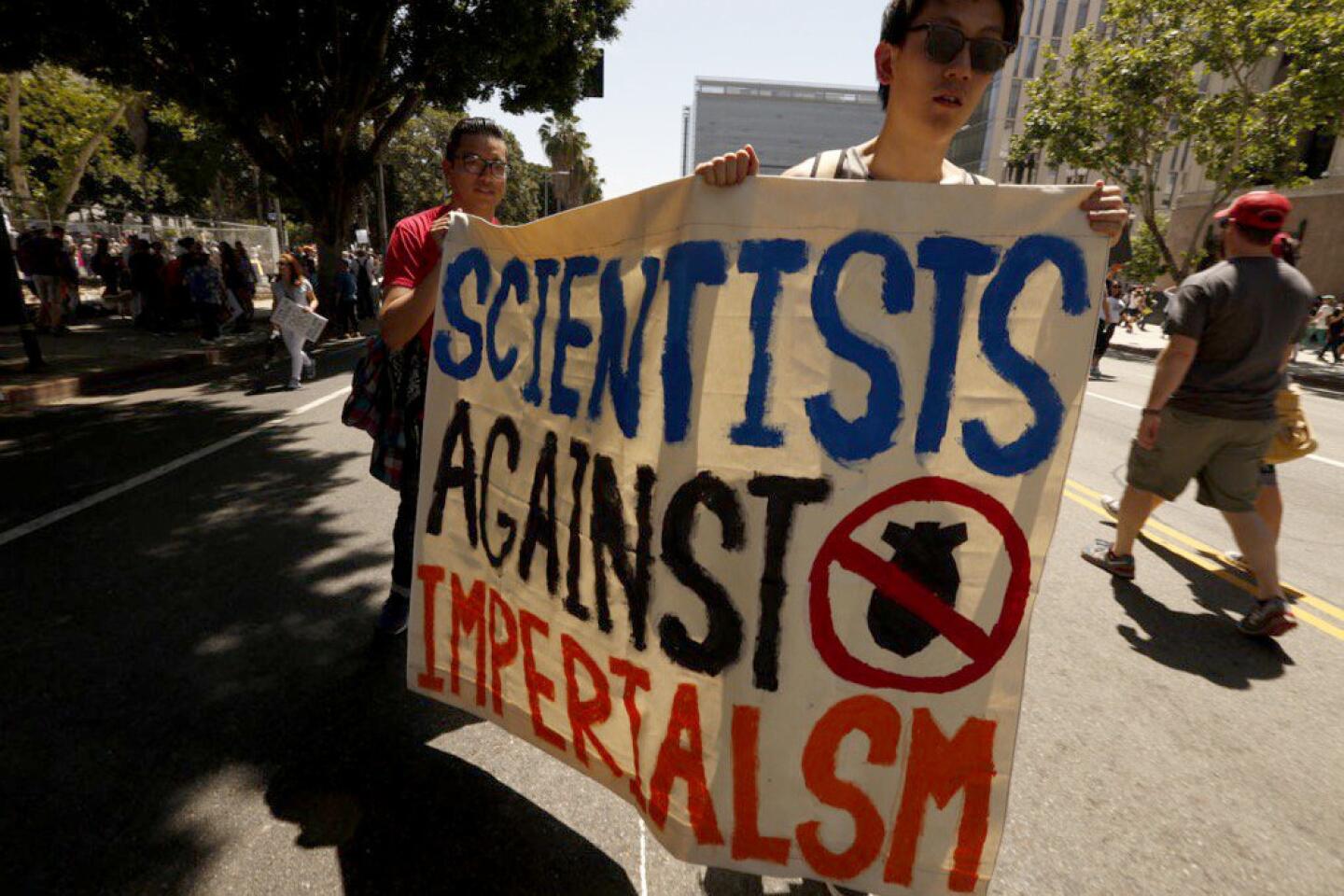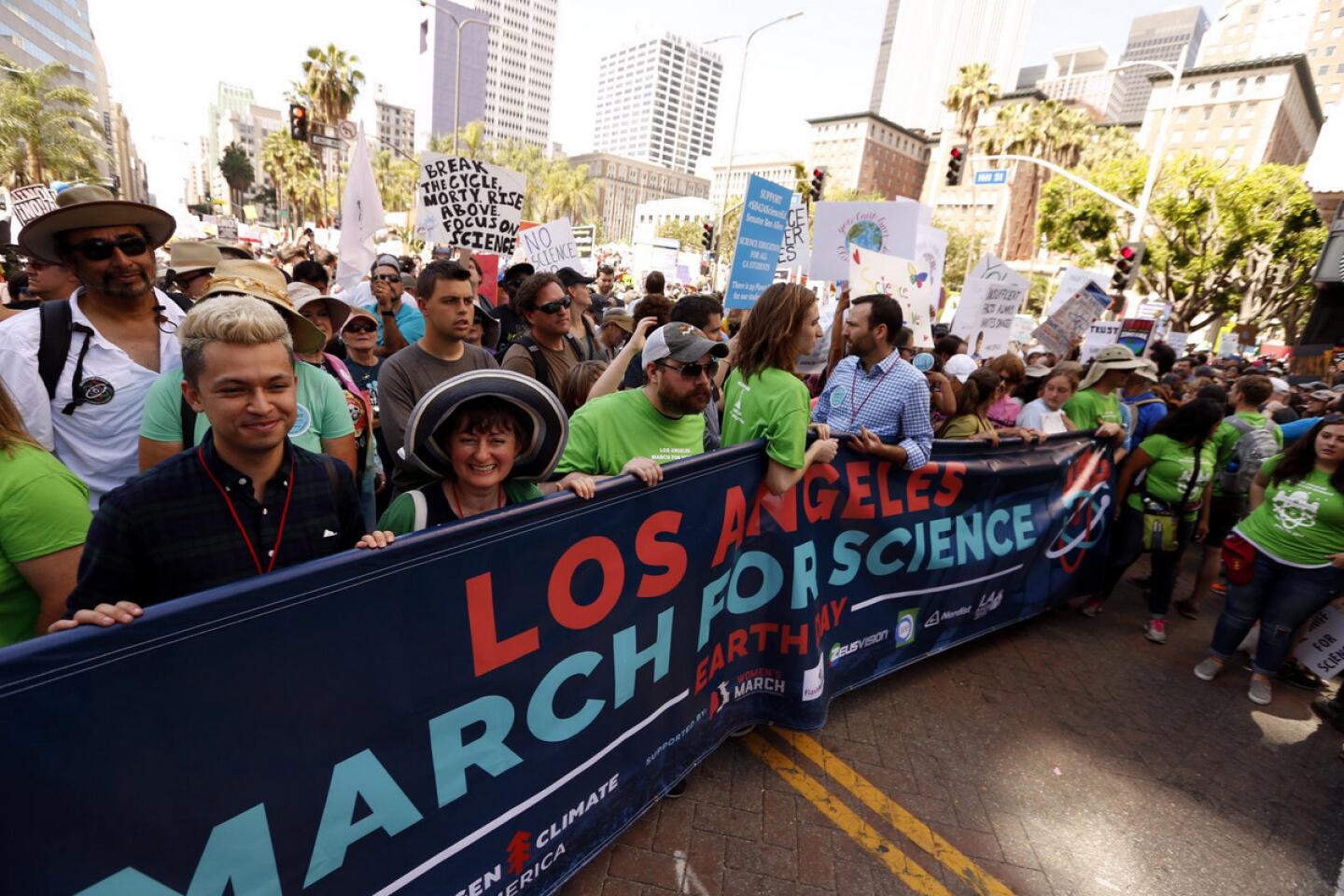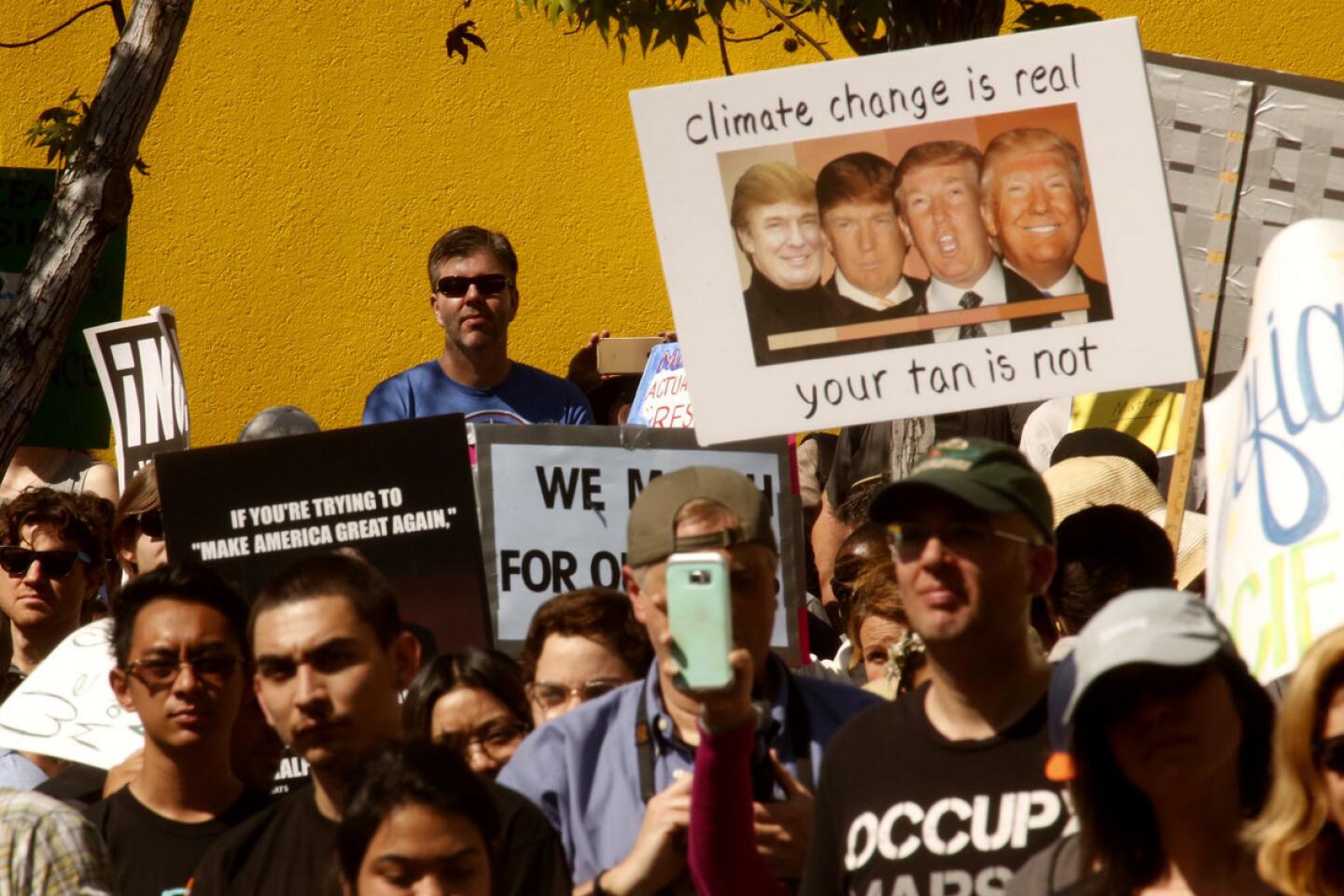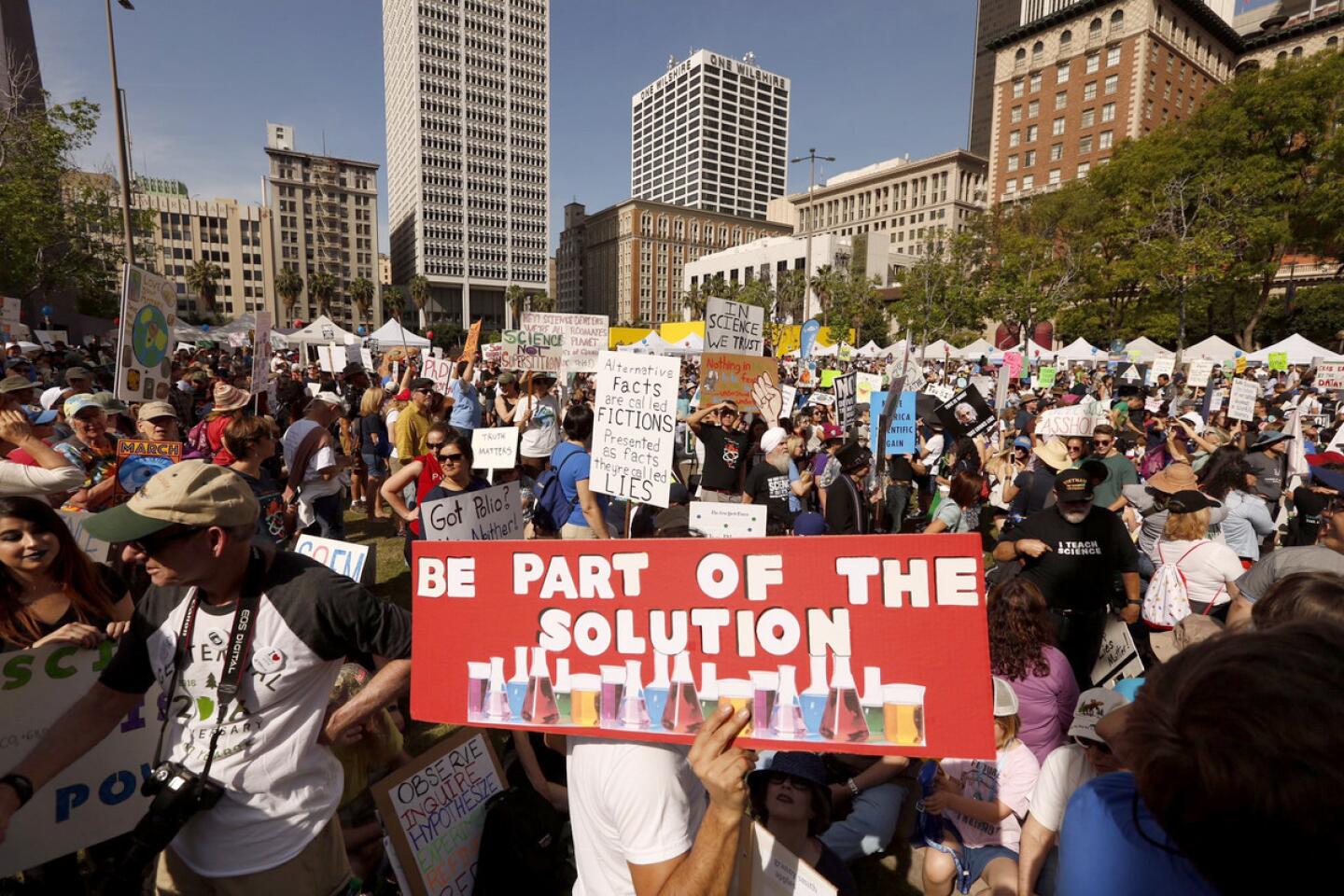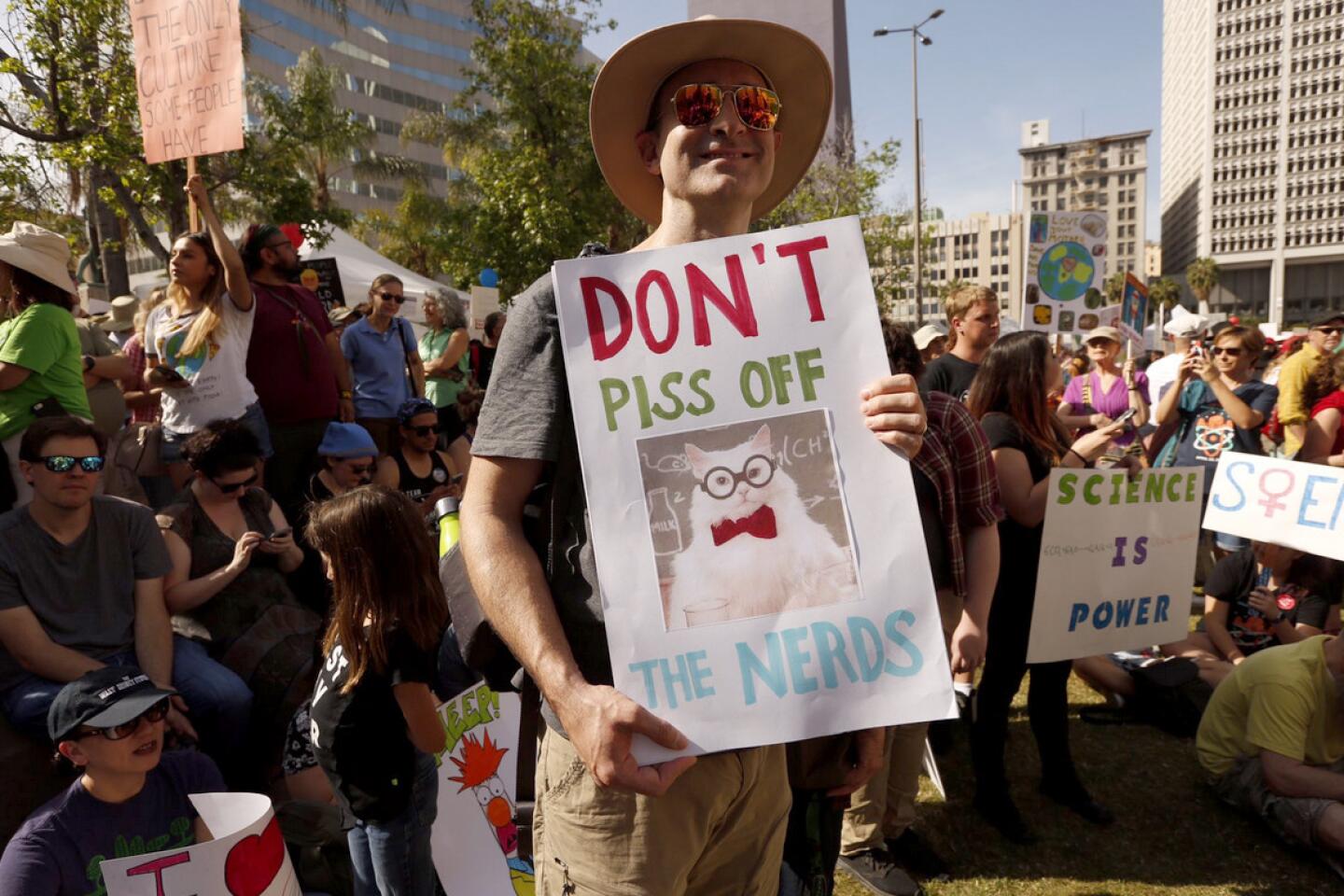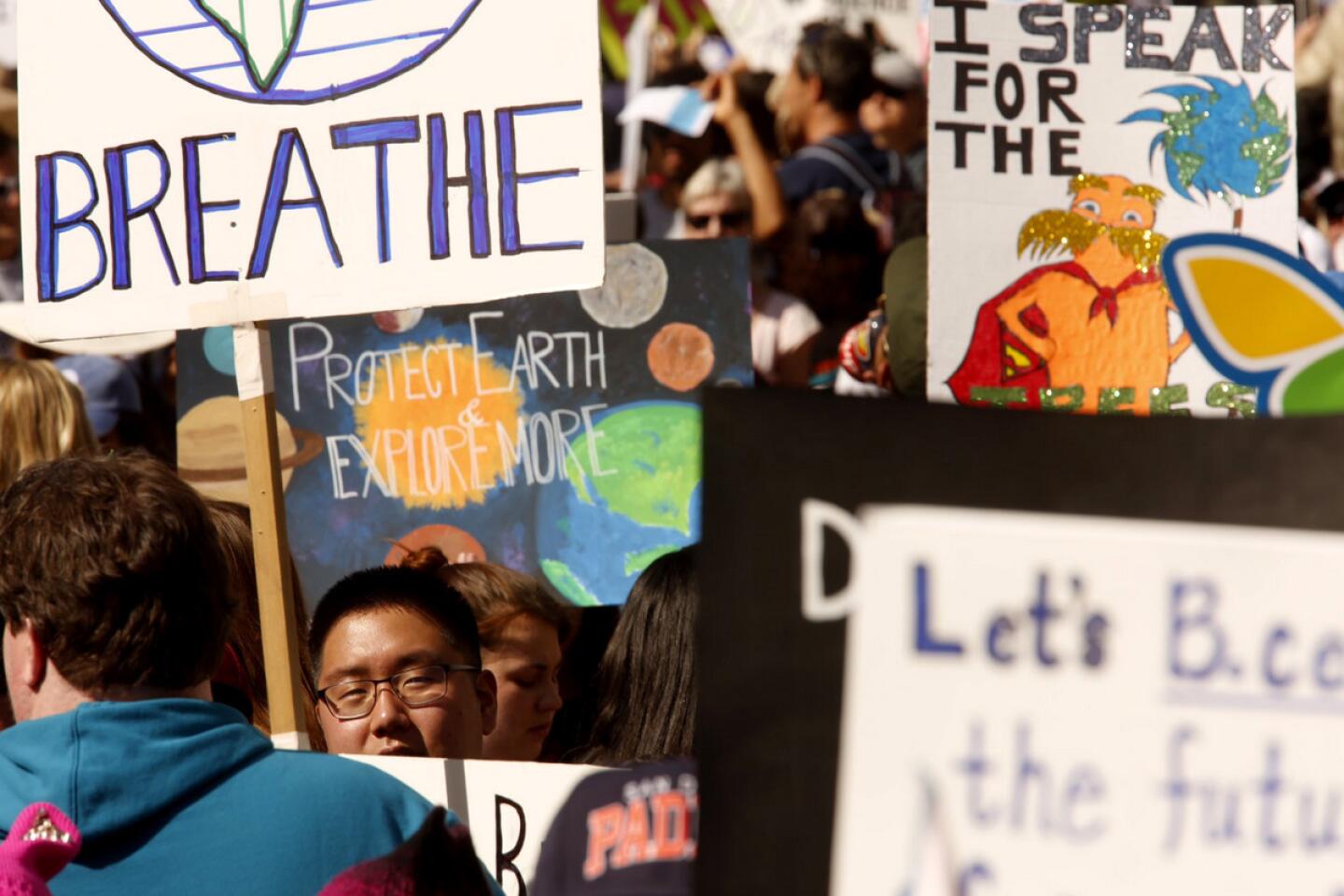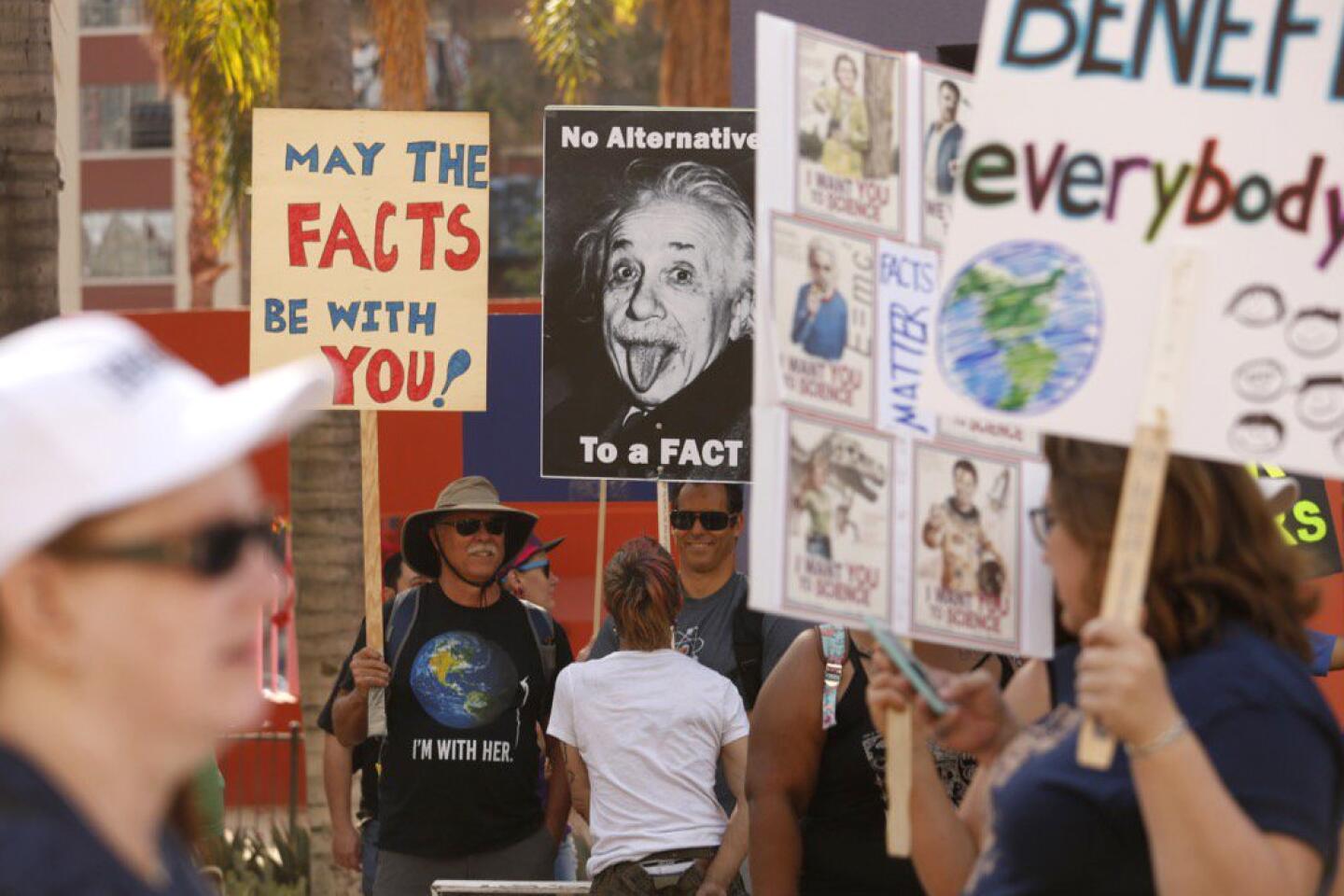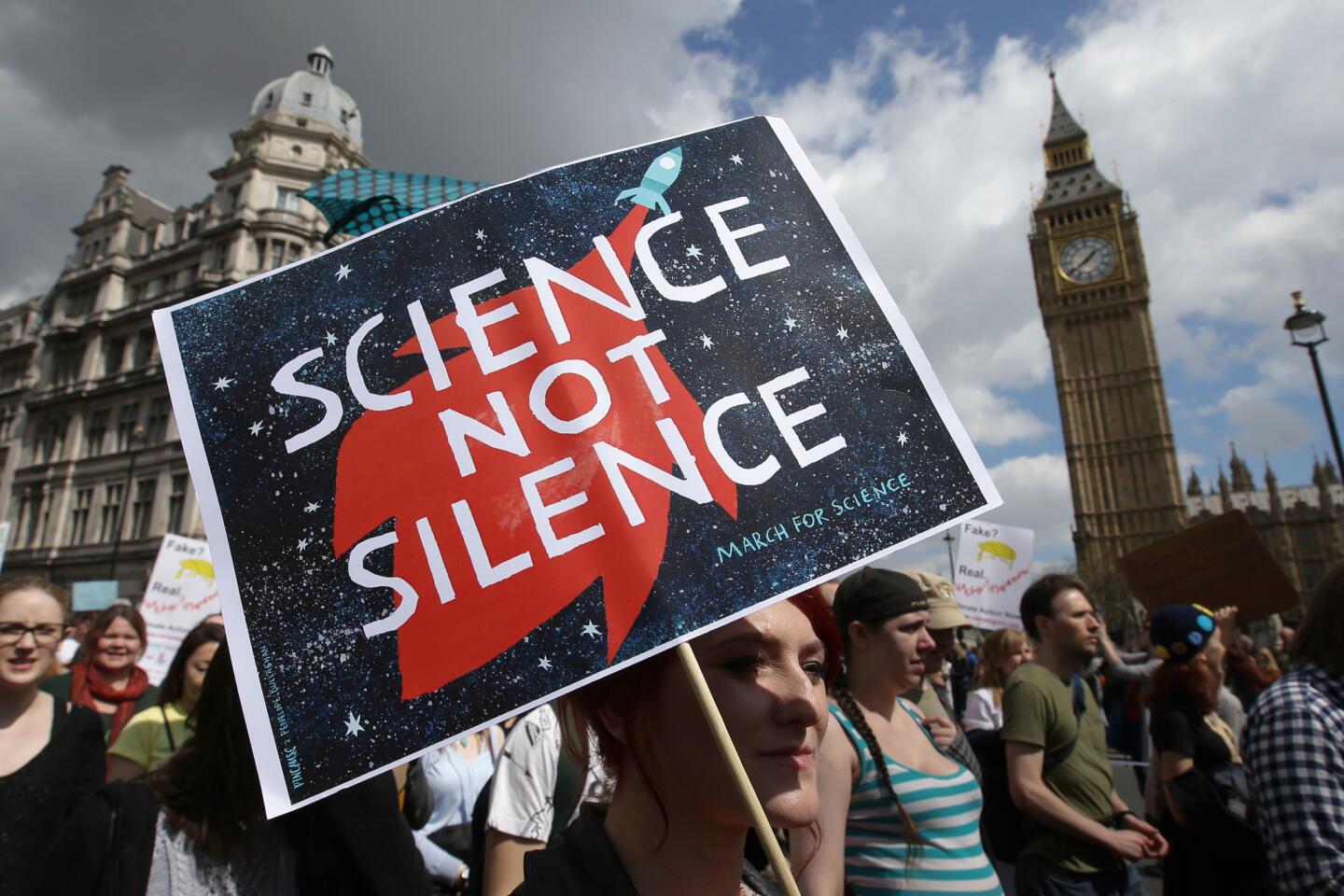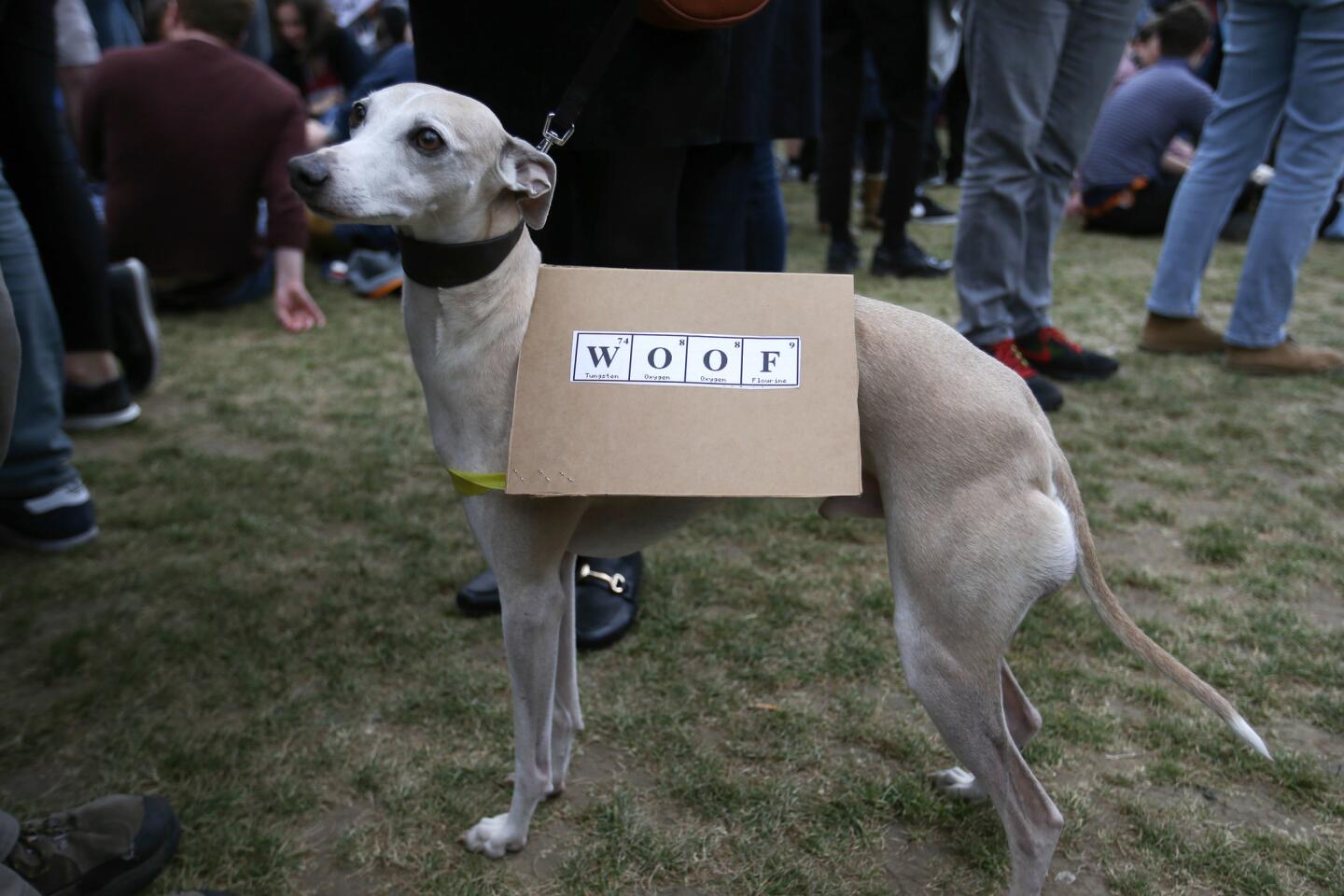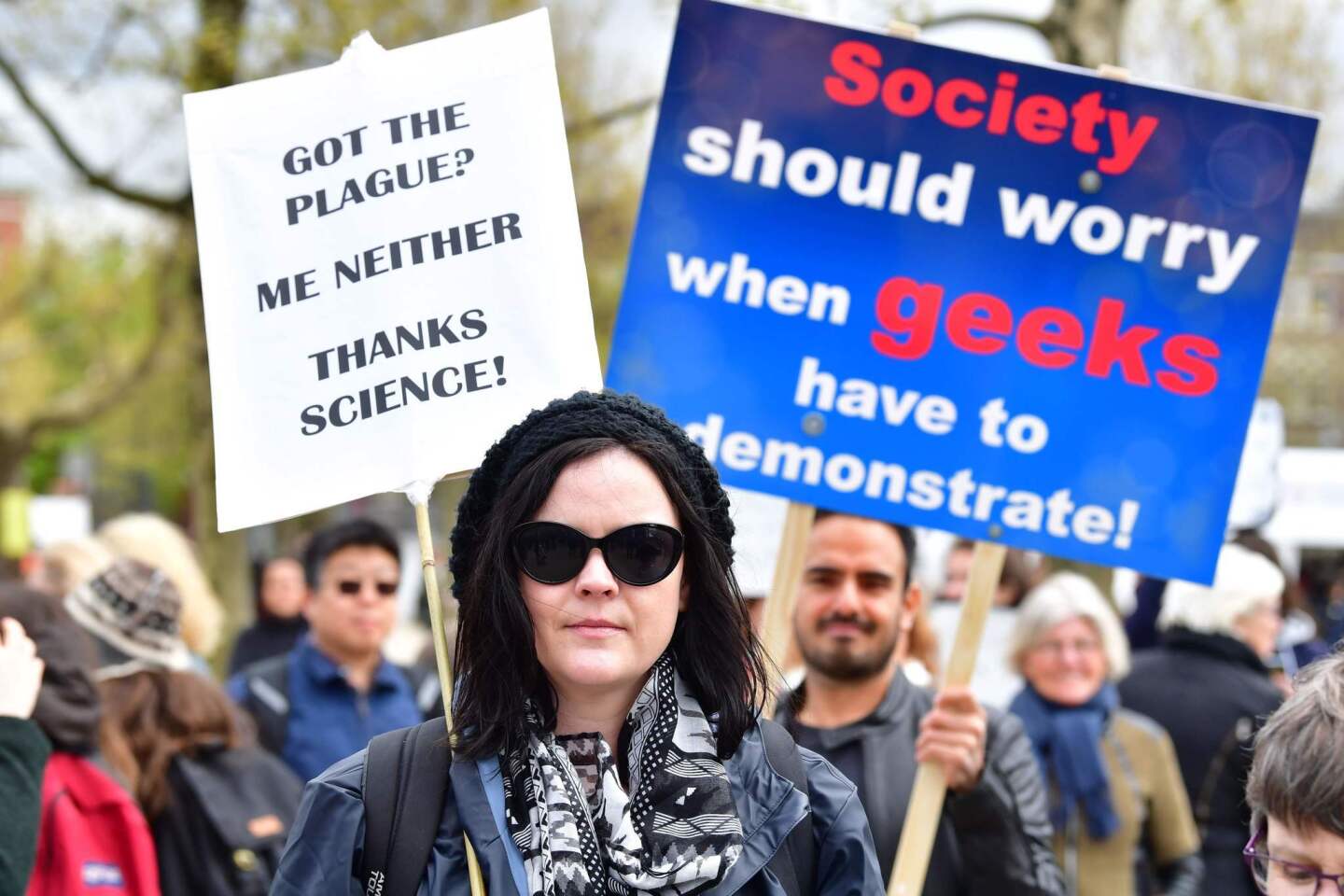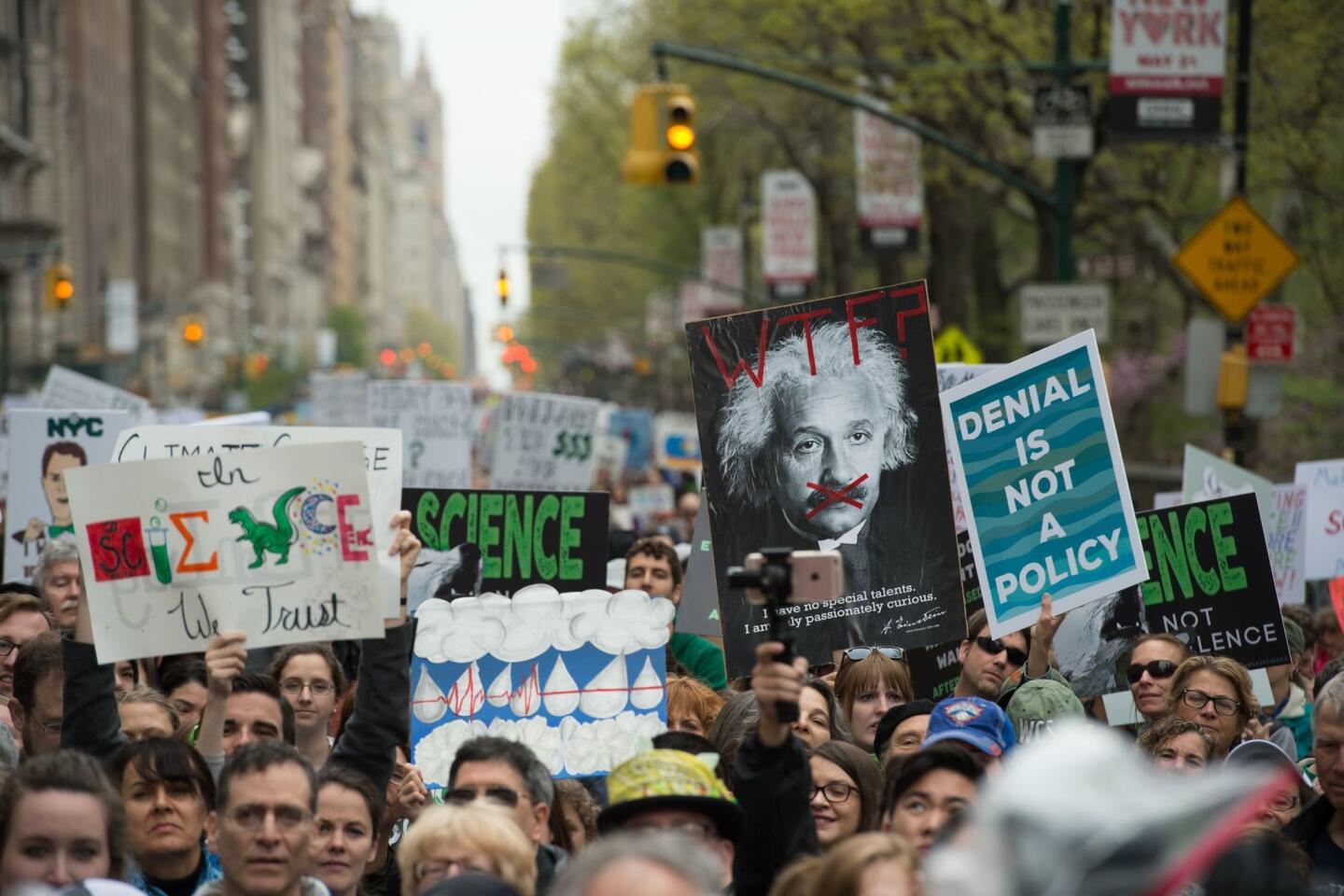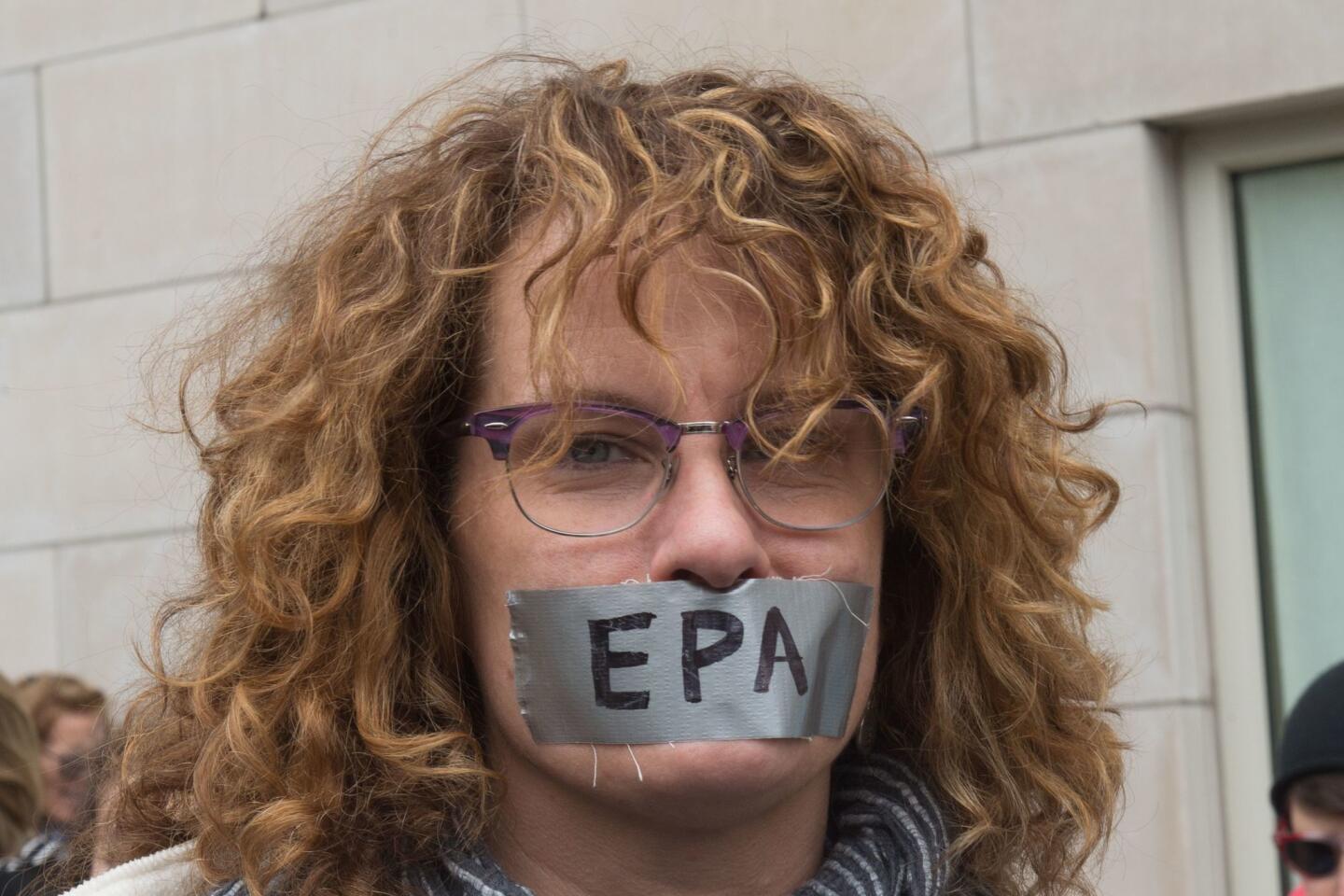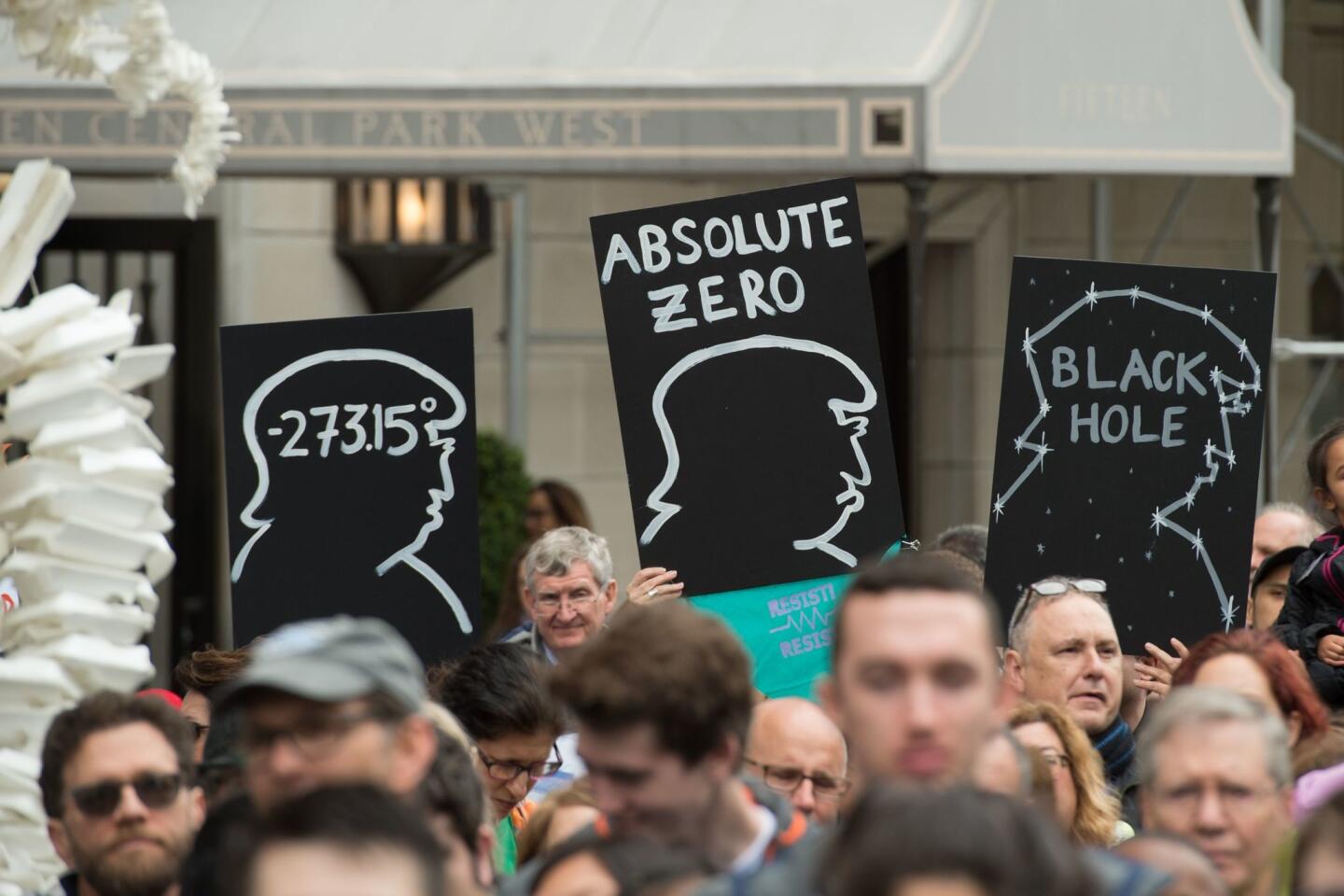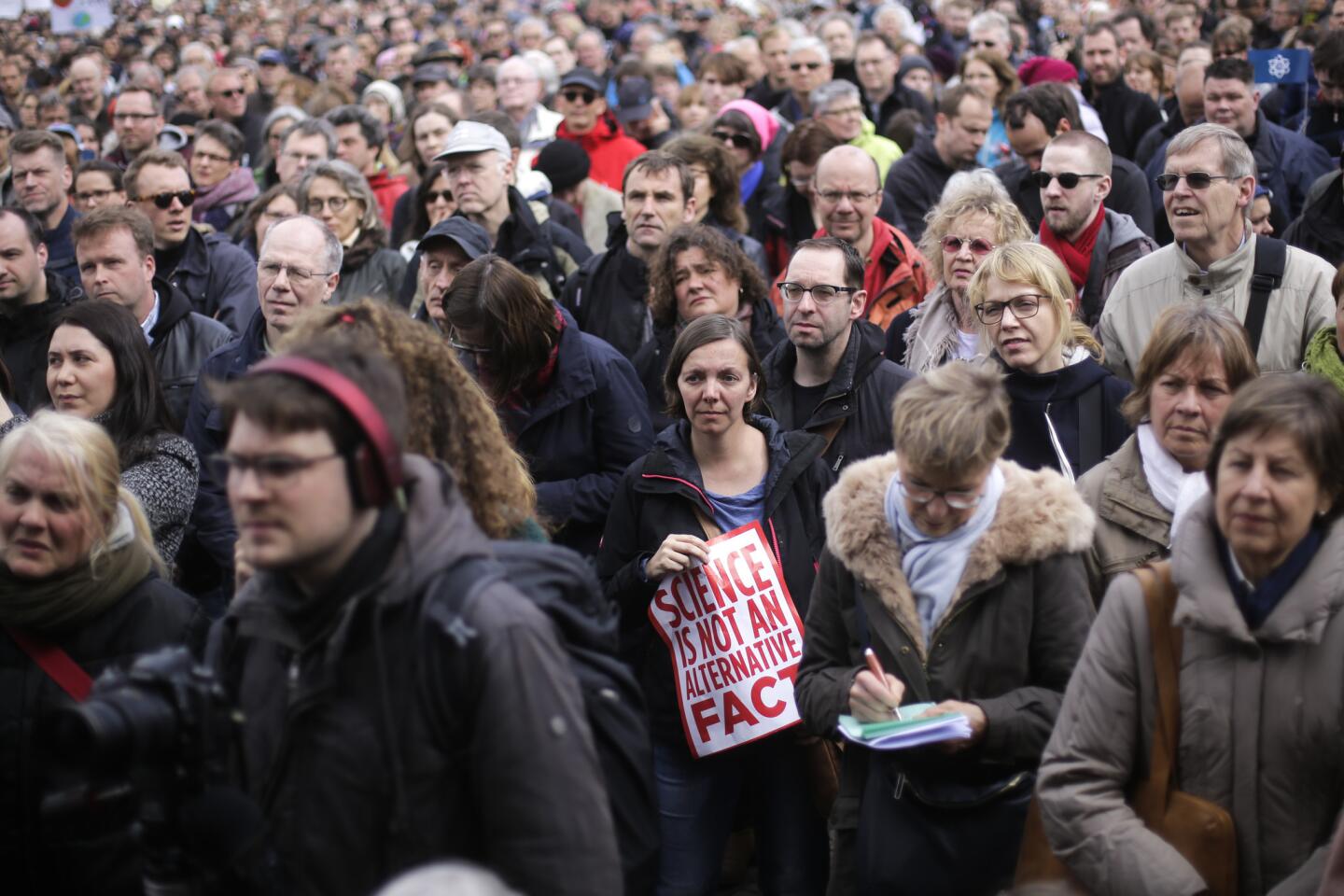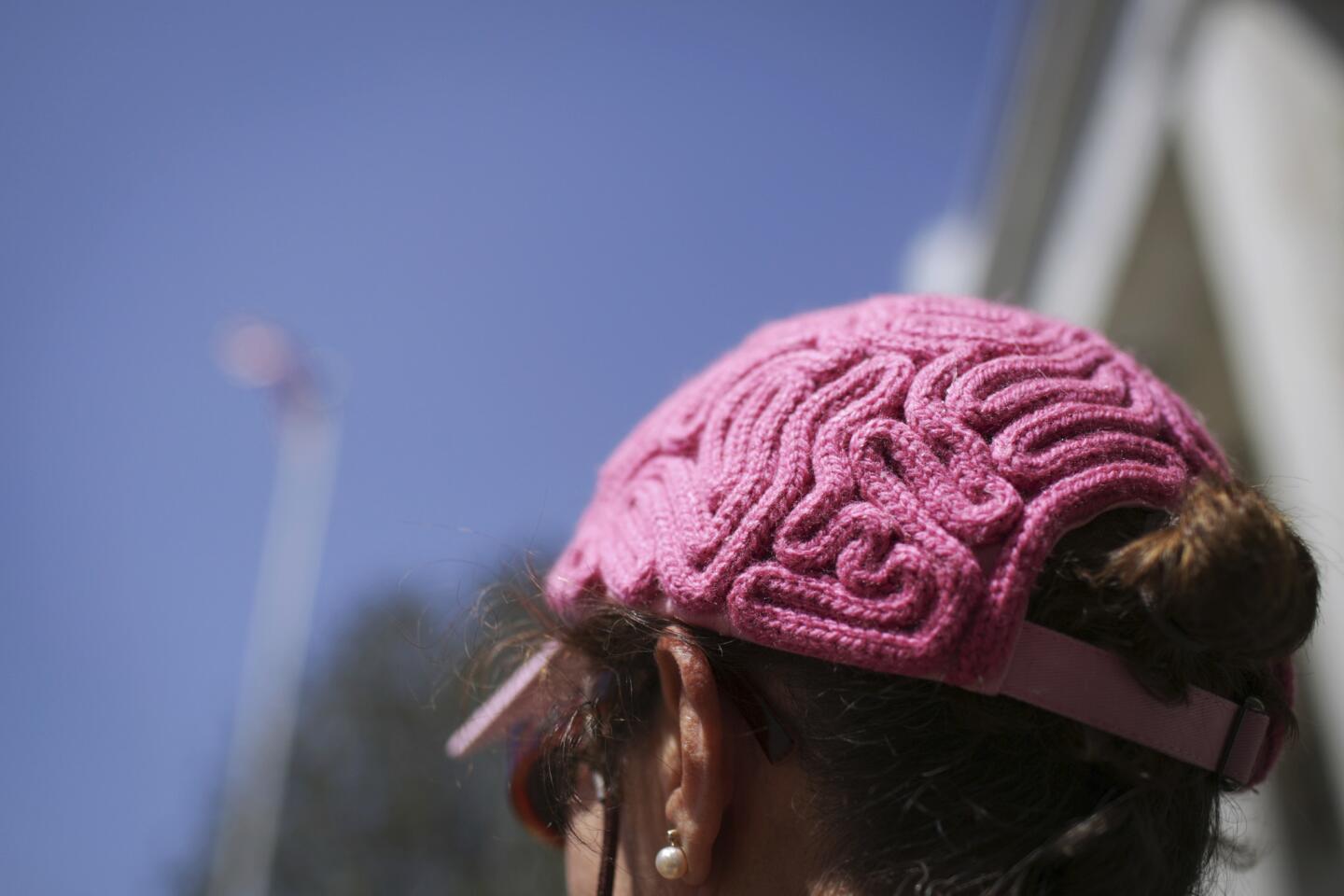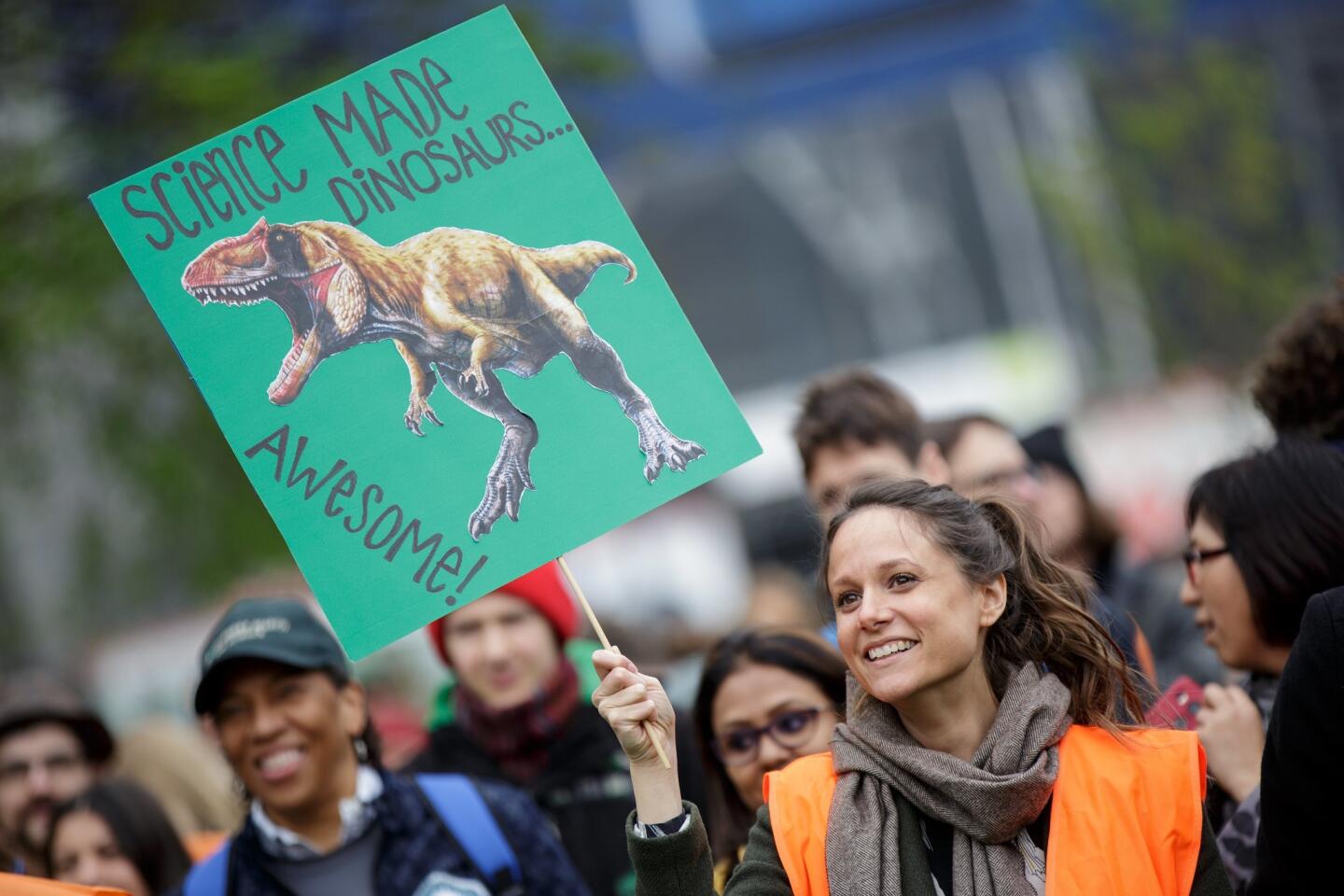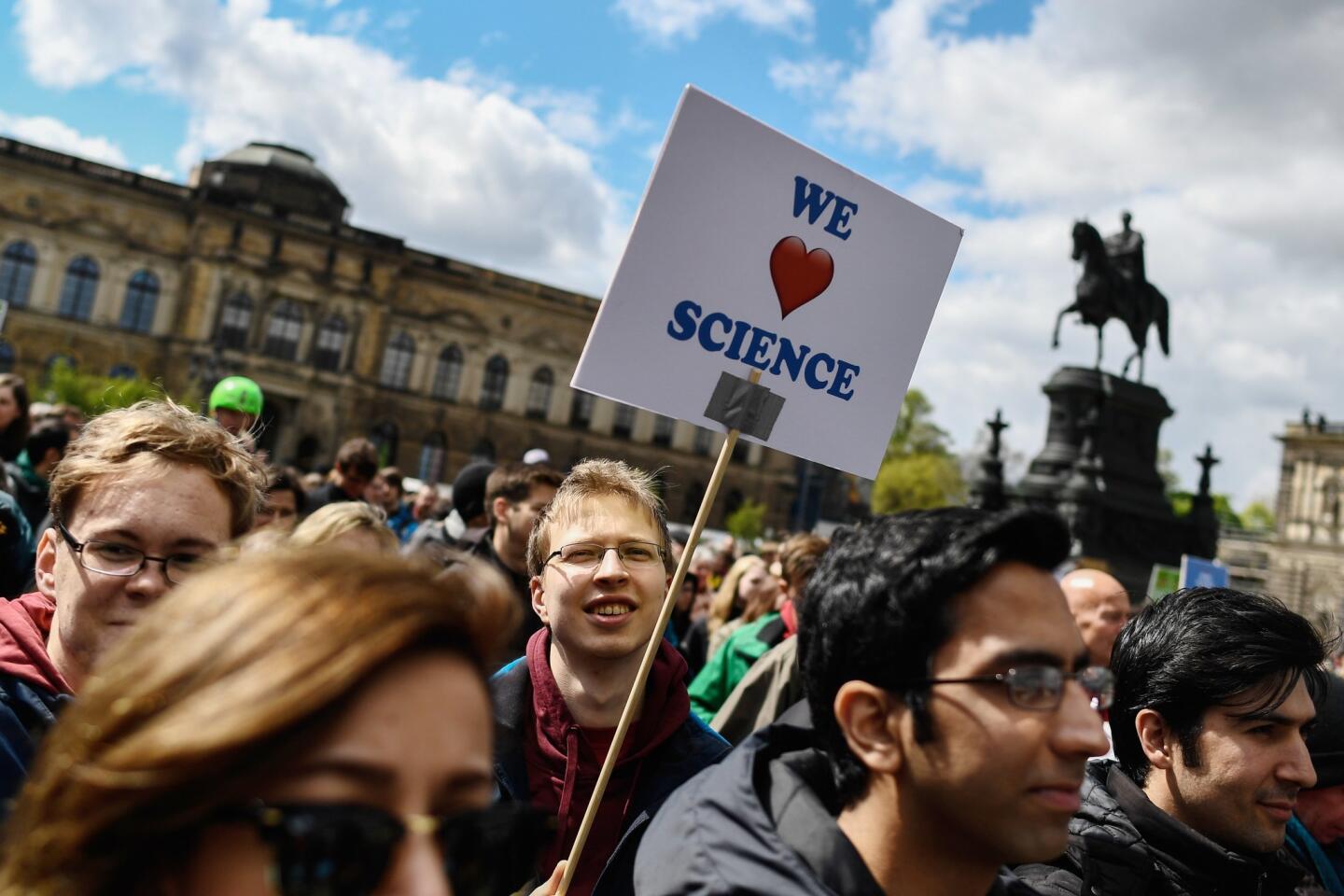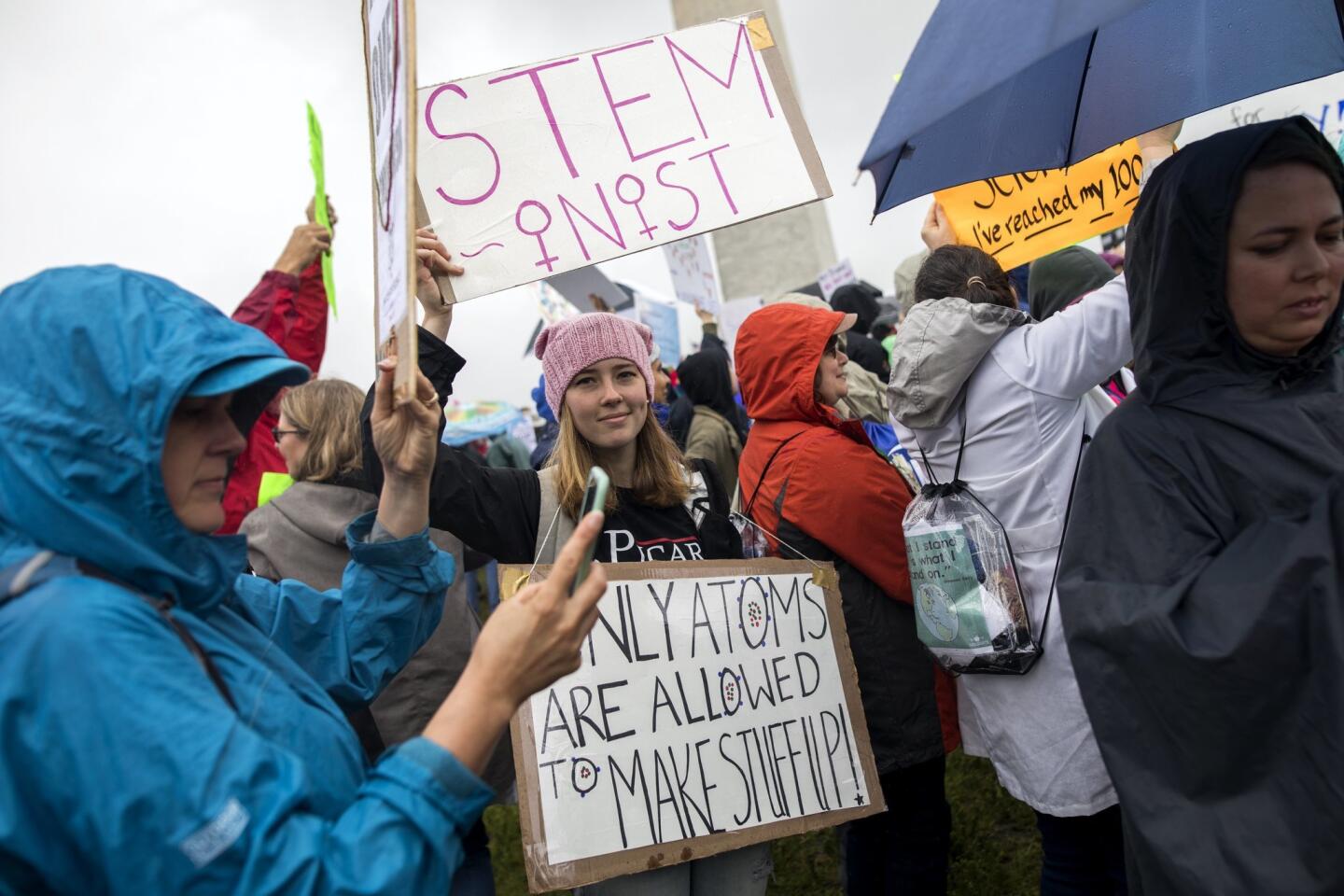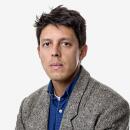‘We need to be out here’: Thousands march in downtown L.A. to support science in the Trump era
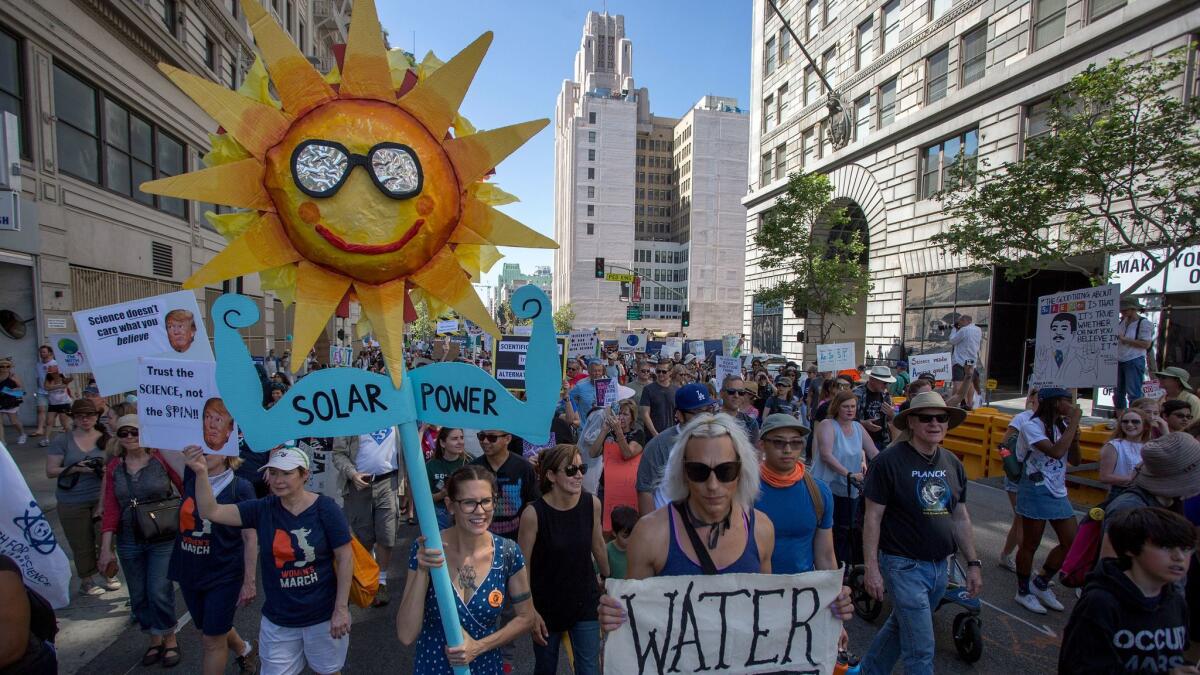
- Share via
Dressed in long sleeves and a sensible safari hat, Dr. Diane Brown carried a sign that read, “My patients need science because lupus is not cured, juvenile arthritis is not cured … CANCER is not cured!”
Brown, a rheumatologist at Children’s Hospital Los Angeles, said she hadn’t attended any marches since President Trump took office at the beginning of the year.
But on Saturday afternoon she joined thousands of others in downtown Los Angeles for the March for Science Los Angeles.
The 52-year-old doctor said her sign had a special significance for her. Two of her patients were diagnosed with cancer last week. One was 8 years old. The other was just 4.
“I have a PhD, I did my time in the lab and I know how hard it is to get the information for each line in a published study,” she said. “That takes hours, months or years, and if we don’t fund it, people will leave labs, and they may never come back.”
The March for Science Los Angeles was one of 600 marches that took place on Earth Day 2017 to “defend the vital role science plays in our health, safety, economies, and governments,” in the words of the organizers.
The main event took place on the National Mall in Washington, but there were more than 40 satellite demonstrations in California alone.
The event’s leaders insisted that it was nonpartisan, but in L.A. the vibe definitely skewed anti-Trump.
“Not since Galileo was condemned by the Inquisition have science-deniers had such powerful friends,” said Rep. Brad Sherman (D-Porter Ranch) at a rally before the march began at Pershing Square.
Tom Steyer, president of the environmental advocacy organization NextGen Climate, was even more pointed.
“There is a force coming out of Washington, D.C., called the Trump administration that is out to deny truth and bury science,” he said.
Indeed, it’s no coincidence that Saturday’s event fell within the first 100 days of the Trump administration, which has proposed drastic budget cuts for the National Institutes of Health and the Environmental Protection Agency. (“Ho ho, hey hey, the EPA has got to stay” was a popular chant Saturday.)
In addition, top administration officials are openly skeptical of the scientific consensus that climate change is caused by human activity.
The march officially began at 11 a.m., when attendees walked the seven blocks from Pershing Square to City Hall.
About two dozen Trump supporters gathered in front of the L.A. Police Department headquarters, across the street from City Hall, to voice their support for the president. Many waved American flags and held up signs that read, “Put America First” and “Stop Your Hate.”
But the two groups were mostly peaceful, and police did not report any major problems or arrests. The marchers said they braved the heat for a variety of reasons, and many of them were demonstrating publicly for the first time.
Jeniffer Hernandez, a professor and immunologist at the Keck Graduate Institute School of Pharmacy in Claremont, had never been to a protest before Saturday.
But she said she felt attacked by Trump — because her parents are immigrants from Mexico, because of Trump’s comments about sexually assaulting women and because her research lab is funded in part by federal grants.
“I’m outraged. I’m upset,” she said. “We need to be out here.”
She carried a sign, written partially in the colors of the Mexican flag, that read, “I’m a 1st generation Mexican American scientist, not a murderer, rapist or drug dealer.”
Daniel Blackburn, a software engineer from Irvine, held up a neon-green sign that summed up how many scientists-turned-activists feel under the new administration: “We are so mad that even the introverts are outside with people.”
Blackburn said he is worried that the U.S. under Trump will fall behind on combating climate change through research or policy. “We are losing out on valuable time we need to actually take action,” he said.
Blackburn is channeling his newfound activism into local politics. He said he has been calling his congresswoman, Rep. Mimi Walters (R-Irvine), repeatedly but said he hasn’t gotten past interns or voicemail.
Sharon Stricker, 27, who works as a tutor and studied neuroscience in school, said science can bring people from different sides of the political spectrum together.
“We had Trump supporters and Bernie [Sanders] supporters in my house,” she said. “But science isn’t a conservative issue or a liberal issue. I want to focus on what we can accomplish as a team.”
Around 1 p.m. some attendees headed back to Pershing Square for what the organizers called the Science Expo — basically a big science fair with booths run by the Planetary Society, the American Lung Assn. and the Sierra Club, among others.
Caltech graduate students taught kids how to make solar panels with sunscreen and blackberries — the blackberry juice absorbs sunlight, while the titanium dioxide in the sunscreen converts the sun’s photons to electrons. A few booths away, a newly minted local group of the 314 Action nonprofit collected names of people who want to support scientists running for public office.
As she was leaving the march, Brown, the Children’s Hospital doctor, mentioned that she saw a 75-year-old man pass out from the heat. She kept him shaded with her sign while a steady stream of EMTs rushed over to make sure he was OK.
Brown surveyed the sea of scientists, doctors and science enthusiasts waving signs and posing for selfies around her.
“If you’re going to have a medical problem, this is a pretty good place to do it,” she said.
Do you love science? I do! Follow me @DeborahNetburn and “like” Los Angeles Times Science & Health on Facebook.
MORE IN SCIENCE
How L.A.’s March for Science came to be
Why doctors are being urged to join the March for Science on Saturday
UPDATES:
7:15 p.m.: This article was updated with new comments and details about the march.
1:55 p.m.: This article was updated with comments from more rally participants.
11:50 a.m.: This article was updated with the march starting and Trump supporters rallying.
10:35 a.m. This article was updated with comments and details about the march.
9:45 a.m.: This article was updated with comments from march participants.
This article was originally published at 6 a.m.
